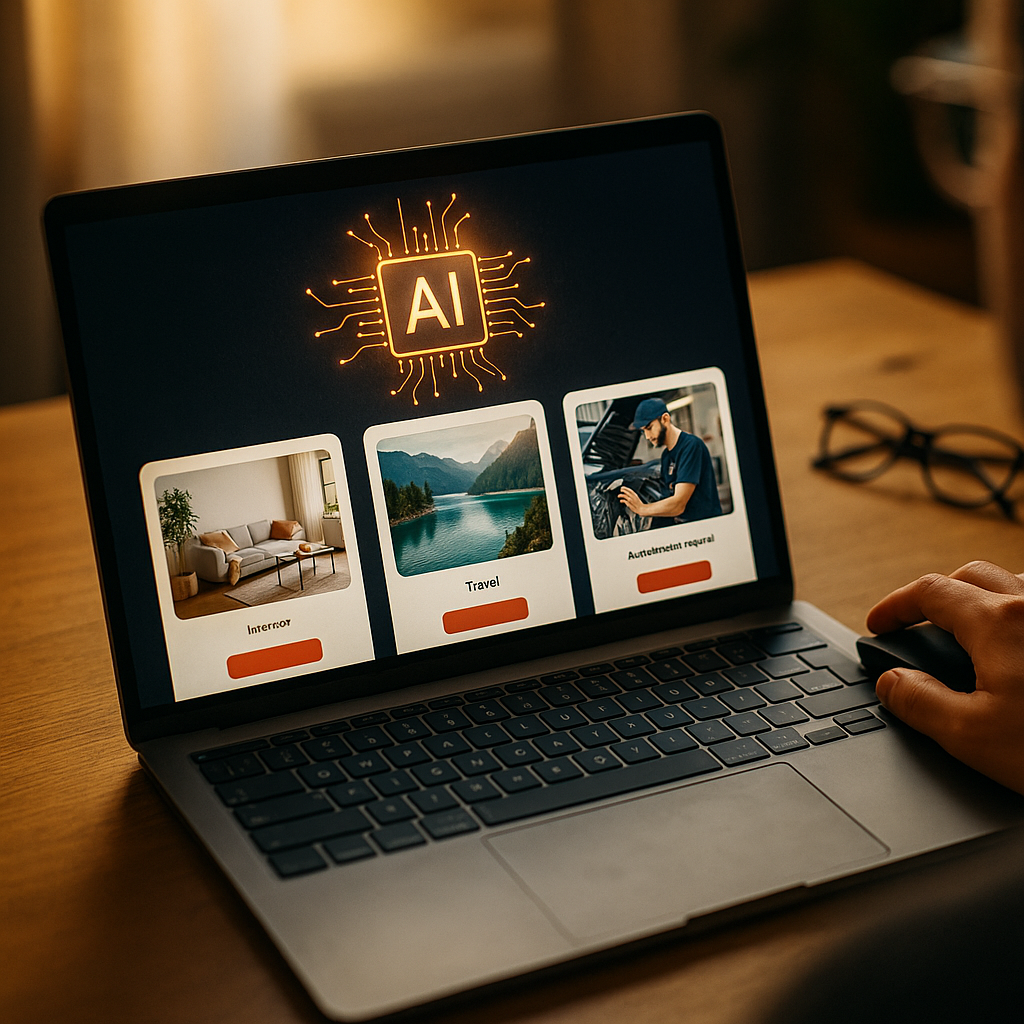Using AI to personalize your landing pages based on the visitor’s industry or role is revolutionizing digital marketing in 2025. Brands now deliver laser-targeted experiences that convert at higher rates than generic web pages. Discover how industry-aware landing page personalization unlocks better engagement, sales, and marketing ROI—with actionable strategies to maximize your own results.
Why Personalize Landing Pages by Industry and Role?
Personalizing landing pages by the visitor’s industry or job role amplifies relevance, immediately boosting trust and engagement. Recent research from Gartner shows personalized landing pages can increase conversion rates by up to 40%. When prospects see content that matches their unique needs, they’re more likely to stay, explore, and convert—giving your business a tangible competitive edge.
- Relevance: Address concerns, regulations, and pains specific to a visitor’s industry or function.
- Trust: Demonstrate deep understanding of visitor challenges, establishing immediate credibility.
- Efficiency: Streamline the sales cycle by eliminating generic content and replacing it with targeted solutions.
- Higher ROI: Pay-per-click and inbound campaigns see better returns as visitors convert more often.
How AI Powers Industry-Specific Landing Page Personalization
AI-driven personalization engines analyze a visitor’s digital fingerprint in real time—using data like IP range, referral source, browsing history, and firmographic information to infer industry and role. These systems instantly serve unique content blocks, images, case studies, and CTAs tailored to each persona, all without manual intervention.
Leading AI-powered platforms now offer:
- Automated segment identification: Instantly recognize industry and role with 87%+ accuracy.
- Dynamic content swapping: Change testimonials, hero images, value props, and form fields per visitor.
- Machine learning optimization: Continuously improve which elements perform best for each segment.
Key Benefits of AI-Led Personalization for B2B and B2C Brands
AI personalization brings measurable business value to both B2B and B2C companies. By mapping page elements to precise visitor needs, brands realize:
- Increased Conversion Rates: Personalized CTAs and messaging dramatically outperform generic versions.
- Improved Lead Quality: Forms adapt to capture the right details for each segment, leading to more qualified leads.
- Faster Sales Cycles: Visitors navigate directly to the information, products, or proof points that matter—reducing research time.
- Reduced Bounce Rates: Targeted content captures interest immediately, motivating exploration.
According to a HubSpot study released in 2025, businesses using industry-aware AI personalization saw 54% higher lead engagement and a 31% reduction in bounce rates.
Implementing Personalized Landing Pages: AI Tools and Strategies
To get started with AI personalization for your landing pages, brands need both robust technology and a user-first strategy. Here’s a proven approach:
- Choose the Right AI Platform: Look for solutions integrating with your CRM and supporting real-time segment detection (e.g., industry, title, company size).
- Map Page Elements: Identify which images, text, testimonials, or offers should vary by industry or role.
- Feed Quality Data: Enhance detection accuracy by connecting intent, firmographic, and behavioral data sources.
- A/B Test Variations: Let the AI run experiments to continually improve versions for each industry/role pair.
- Monitor EEAT Factors: Prioritize trustworthiness, authoritativeness, and accuracy in all industry-specific content, especially when referencing compliance or best practices.
Implementing a closed feedback loop between sales, marketing, and AI analytics ensures your landing pages remain high-converting as visitor preferences evolve.
Best Practices for Ethical, High-Impact Personalization
To maintain visitor trust and meet evolving privacy expectations, follow these ethical and technical best practices:
- Transparent Data Use: Clearly disclose how and why visitor data is used for personalization, satisfying GDPR and CCPA requirements.
- Personalization Without Intrusion: Avoid over-personalization—serve industry/role-relevant content, not sensitive personal details.
- Accessible Design: Ensure AI-delivered content meets accessibility standards for all users.
- Continuous Quality Review: Regularly audit personalized content for factual accuracy, brand consistency, and EEAT alignment.
- Bias Testing: Check that AI models do not inadvertently exclude or miscategorize certain industries or roles.
The Future of Landing Page Personalization: What to Expect Next
In 2025 and beyond, the next wave of AI personalization will further narrow content to hyper-specific audience subsets. Expect voice-of-customer insights, real-time buyer intent signals, and predictive analytics to shape landing pages dynamically with every visit. Integrations with sales, product, and customer success data will ensure each visitor’s experience is truly one of one.
Frequently Asked Questions
-
How can I identify my landing page visitor’s industry or role?
Modern AI systems use IP address lookups, referral data, firmographic databases, and CRM integrations to infer likely industry and, when possible, job function. -
Does AI personalization work for small businesses?
Yes! Many AI tools are scalable for any budget, providing plug-and-play integration with common website builders and CRMs. -
What’s the risk of over-personalization?
Overly granular targeting may seem invasive or break privacy laws. Focus on relevance and transparency, and never display personal data the visitor hasn’t volunteered. -
How do I measure the success of AI-driven landing pages?
Track conversion rates, engagement metrics, bounce rates, and lead quality. Most platforms offer built-in analytics dashboards segmenting results by industry and role. -
What privacy guidelines should I follow?
Adhere to GDPR, CCPA, and similar regulations. Always let users know what data is collected and offer easy opt-out controls.
AI-based industry and role personalization is the new standard for high-performing landing pages. Leverage these strategies and best practices to earn your audience’s trust and drive stronger results than ever before—turning every visit into a tailored, conversion-ready experience.
